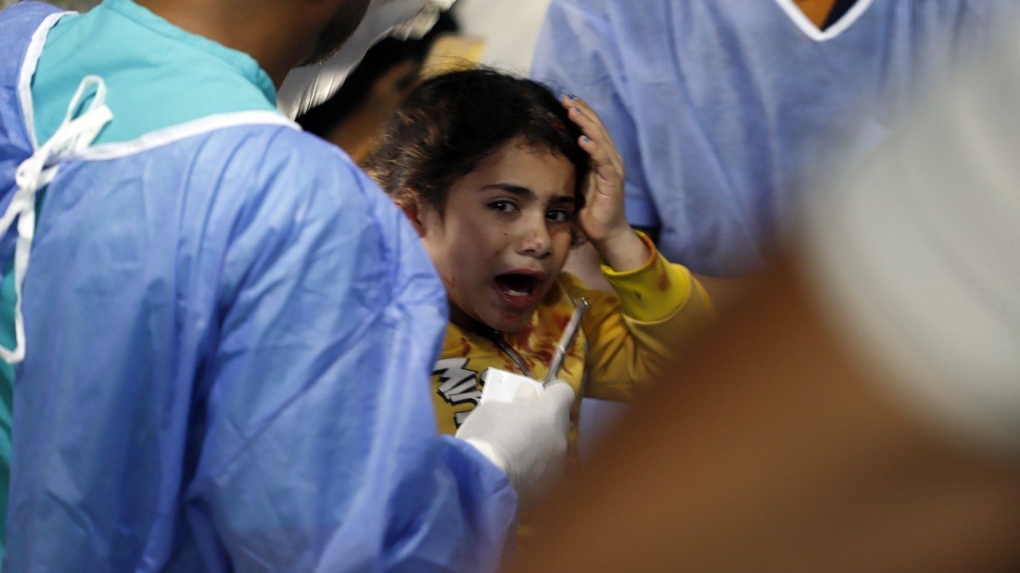
Israel seizes Gaza's vital Rafah crossing, but the U.S. says it isn't the full invasion many fear
CTV
Israeli troops seized control of Gaza’s vital Rafah border crossing on Tuesday in what the White House described as a limited operation, as fears mount of a full-scale invasion of the southern city as talks with Hamas over a ceasefire and hostage release remain on a knife's edge.
Israeli troops seized control of Gaza’s vital Rafah border crossing on Tuesday in what the White House described as a limited operation, as fears mount of a full-scale invasion of the southern city as talks with Hamas over a ceasefire and hostage release remain on a knife's edge.
The UN warned of a potential collapse of the flow of aid to Palestinians from the closure of Rafah and the other main crossing into Gaza, Kerem Shalom, at a time when officials say northern Gaza is experiencing “full-blown famine.”
The Israeli foray overnight came after hours of whiplash in the now seven-month-old Israel-Hamas war, with the militant group saying Monday it accepted a ceasefire proposal that Israel insisted fell short of its own core demands.
The high-stakes diplomatic moves and military brinkmanship left a glimmer of hope alive — if only barely — for a deal to bring at least a pause in the war, which has killed more than 34,700 Palestinians, according to local health officials, and has devastated the Gaza Strip.
The Rafah and Kerem Shalom crossings are critical entry points for food, medicine and other supplies for Gaza’s 2.3 million people. They have been closed for at least the past two days, though the smaller Erez crossing between Israel and northern Gaza continues to operate.
By capturing the Rafah crossing, Israel gained full control over the entry and exit of people and goods for the first time since it withdrew soldiers and settlers from Gaza in 2005, though it has long maintained a blockade of the coastal enclave in cooperation with Egypt.
Israeli Prime Minister Benjamin Netanyahu called the capture of the crossing an “important step” toward dismantling Hamas' military and governing capabilities, and Defense Minister Yoav Gallant said Israel would “deepen” the Rafah operation if the talks on the hostage deal failed.
